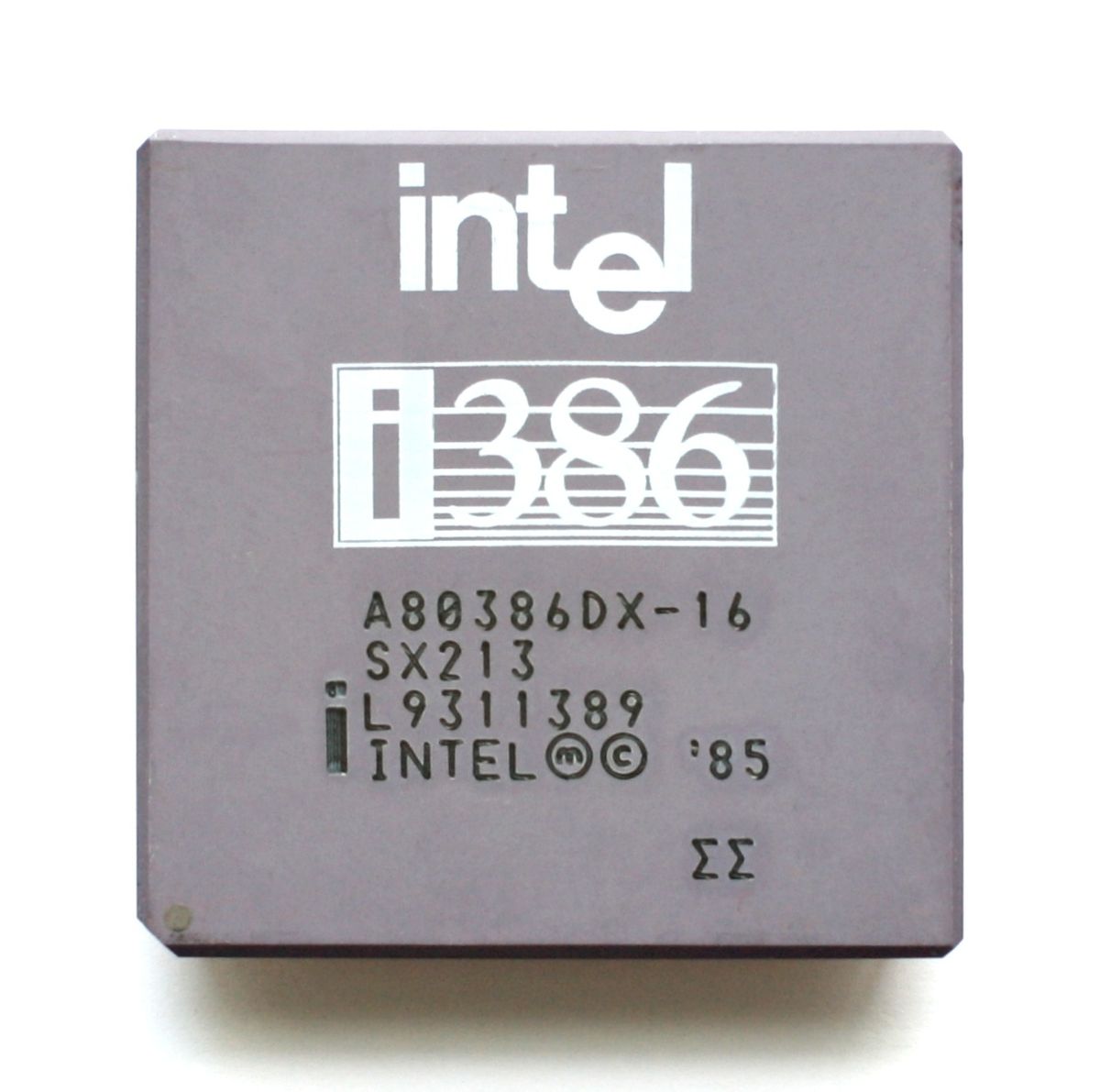A simple question to this community, what are you self-hosting? It’s probably fun to hear from each-other what services we are running.
Please mention at least the service (e.g. e-mail) and the software (e.g. postfix). Extra bonus points for also mentioning the OS and/or hardware (e.g. Linux Distribution, raspberry pi, etc) you are running on.
I host:
Fedi servers
- lemmy.world
- mastodon.world
- calckey.world
- pool.social
- musicworld.social
- akkoma.nl
- ruud.social
- fotofed.nl
- fediland.nl
- blog.mastodon.world
- play-my.video
Software I use
- Nginx Proxy Manager
- Portainer
- Kimai
- Xwiki (3 of them)
- Cryptpad
- Grafana
- Hedgedoc
- Matrix/Synapse
- Thelounge
- Vaultwarden
- Gitea
- Nextcloud
- Paperless-ngx
- Zabbix
- Zammad
Probably forgot some…
Chad.
Do you host on at your house, a VPS or something else?
All on Hetzner.
Thanks for #rexxit destination!
My long and mostly complete list:
- Audiobookshelf (GH)
- Using for audiobooks. Ebooks, comics, and podcast support in early stages.
- Authelia (GH)
- Using for two-factor authentication in front of all of my services. Critical infrastructure.
- Bazarr (GH)
- Using for automated subtitle management. Have not needed to rely on it much.
- Code-Server (GH)
- Using for a plethora of things. I could write an entire post on this alone.
- Courier
- Using (occasionally) for package-tracking from various carriers.
- EmulatorJS
- Using for retro-emulation.
- Gitea (GH) x2
- Using as a git repo server, package repository, and for CI/CD automation. Is critical infrastructure in my lab. Could also write an entire post on this one.
- Headscale with Headscale-UI. Tailscale clients on various VMs LXCs, etc.
- Using to securely network with my remote servers.
- Homepage
- Using as a “single-pane-of-glass” to get an overview of service health with links to the various services.
- Invidious
- Using in-place of YouTube.
- IT-Tools (GH)
- Using for the myriad of various useful tools it offers.
- Jellyfin (GH)
- My media player of choice. Using for movies and television, but supports music, ebooks, and photos in addition.
- Kopia Server (GH)
- Using for data backups to my Minio instance on local NAS and Wasabi. Simple, fast, and reliable.
- Librespeed (GH)
- Using for the occasional speedtest to my remote servers.
- Matrix stack using Conduit back end and Element-Web front end
- Federated Discord essentially. Using as a private instance for friends and family.
- Minio
- Using primarily as a gateway to storing backups, also serves git-lfs for Gitea.
- N8N (GH)
- Using for home-automation, backing up my Reddit saved posts to a database, deal-alerts, and part of a CI/CD pipeline.
- NTFY (GH)
- Using for infrastructure notifications mostly. Very simple and versatile alerting solution.
- NZBGet
- Using for getting “usenet articles”.
- Paperless-NGX
- Using for document archival. Important receipts, documentation, letters, etc. live here.
- Portainer (GH) with multiple agents on VM’s LXCs and VPSs
- High level management of my various docker containers.
- Prowlarr
- Using to provide torznab API to websites that dont natively have it. Integrates with Radarr and Sonarr
- Radarr (GH)
- Using for movie management.
- Radicale
- Using for contacts and calendar server.
- Raneto (GH)
- Using as a knowledge base. Lab documentation, lists, recipes, lots of things live here. Using with with code-server and Gitea.
- Readarr (GH)
- Using for book management
- Recyclarr (GH)
- Using for Radar and Sonarr to sync search terms for their automations. Very useful, hard to summarize.
- Requestrr
- Using (very rarely) as a requests bot for Radarr and Sonarr.
- SFTP-Go
- Using mostly in-place of Nextcloud. Used to back up phones mostly.
- Shaarli (GH)
- Using as a read-it-later service. Went through lots of these, and Shaarli has been good enough.
- Singlefile-Archive
- A hacky way of presenting pages saved with the singlefile browser extension. Not exactly happy with the solution, but for my ocasional use it does work.
- Sonarr (GH)
- Using as TV series manager
- Speedtest-Tracker (GH)
- Using to get periodic speedtests. Plan to automate results to blast my ISP if my service speed gets too low.
- Traefik (GH) on each seperate host
- Using as a web proxy in front of my various services. Critical infrastructure.
- Transmission (GH)
- Using to get “Linux ISOs”
- Uptime Kuma (GH)
- Using to monitor site and services status along with a few others. Integrated with NTFY for alerts.
- Vaultwarden
- Using as my password manager. Have been using for years, cannot recommend enough.
- A handful of static websites served with NGINX
- The old standby, its been reliable as a webserver.
These services are the result of years of development and administrating my lab and while there is still some cruft, it’s mostly services that I think have real utility.
As far as hardware:
-
Running pfsense on a toughbook laptop as a router-firewall.
-
A SuperMicro 24 bay disk-shelf with Proxmox and ZFS for NAS duties and a couple services.
-
Lenovo Tiny boxes with a Proxmox cluster for the majority of my local services.
-
Dell managed switch
-
A few Raspberry-pi’s with Raspbian for various things.
-
Linksys AP for wifi
Edit: Spelling is hard.
Did you get a dual nic in the laptop router, or how did you work it?
It’s an older Panasonic ToughBook CF-C2 with an ExpressCard34 slot I’d say circa 2013. I have a gigabit Ethernet adapter jammed in there for WAN. I’ve been using the setup for maybe 8 years and it’s been ultra reliable for me.
Expresscards are an underrated feature of old laptops as a server.
That is impressive. For the sake of curiosity, do you have any photos or diagrams you could share?
Hmmm. I don’t have a network/infrastructure diagram or anything yet, but I’ve been meaning to create one. I’ll probably put one together and post more about my setup if there’s any interest. I’ll be sure to tag you when I do. Thanks for the interest!
Mind blown! Thanks so much for the comprehensive list!! 🙏
Fantastic breakdown, thank you!
- Audiobookshelf (GH)
Oh my jesus, does this thread really have 400+ comments
Edit: respectfully as an atheist
Yep, people are enthusiastic about self hosting and like talking about what they host :)
And talk about it on a self-hostable platform, no less.
Currently all LAN only, still in the experimental stage finding out what’s useful/preferable to me and what I want to keep:
KEEPING
Pi-Hole - ad/malware/tracker blocking
Portainer - Easy Docker
Syncthing - Sync folders between devices
Planka - Kanban board
I.T. Tools - Handy I.T. Tools
Bookstack - Personal documentation
Mealie - Recipe manager/meal planner
Jellyfin + usual accompaniments - Media Management
Navidrome - Music library
Changedetection - Stock monitoring
Gotify - For push notifications from other apps
Filebrowser
That Word Game ;)UNDECIDED (may swap for alternatives or just remove)
Organizr - Homepage
Jump - Homepage
Homepage - Yup, another homepage!
Linkding - Bookmarks
Shiori - Pocket replacement
Etebase - CalDAV & CardDAV
Whoogle - Google without the crap
Photoprism - Photo management
Libreddit (not being used now!)
QBittorrent - for Linux ISOs
Uptime-Kuma (for when I do open a few services to family)
Ryot (beta) “Roll Your Own Tracker” - Media TrackerPLANNING TO ADD
Reverse-proxying (likely NPM) + Security (Fail2Ban, Autheilia?)
Audiobooks
Comic book management
Translation service
Document manager
Home Assistant on its own Pi4 when I can get hold of oneLong Time Developer always googling for specific tools when needed just learned about I.T. Tools. Thanks.
How are you liking shiori? I’ve not found a bookmark manager that’s worth going through my horrible mess of bookmarks yet, but the offline archive option looks interesting.
To be honest I’ve not really used it very much, but it’s functional and simple. I have nothing against it, other than “If I’ve not really used it, do I really need it?” (hence it being on my “Undecided” list.
It’s worth mentioning the docker hub image is very out of date, but the github is active as someone else took over.That is worth mentioning, thanks. I probably would have missed it and thoughtbit wasn’t active.
As an offensive security worker… I can’t help but read people listing out their attack surface 😂
My RISV-V server (I have removed all binary blobs and have no closed source code ofc) is airgapped inside a Faraday cage.
For security reasons I never turn it on.
I like how you think.
All my deploys are written in binary on a stack of index cards that we then burn, put in a zip lock bag, encase in concrete, surround in a welded closed steel box, and throw in the Mariana Trench. The documentation sucks though.
Nah, it’s all safe, it’s in containers
</s>
On 3 Rpis and a NAS around my home:
-
Nextcloud - Google replacement
-
Actual Budget - YNAB type server that’s super simple and meets my needs
-
Apache web server - portal to my projects
-
PiHole - DNS pass/allow list
-
PiVPN - Allows me to connect to my home VPN when abroad
-
2009Scape - A little RuneScape Private Server I turn on and off on my desktop when I’d like to afk at work
-
Docker - A couple docker instances - one on my test pi I use to roll out onto my “prod” servers
-
Backup server - 14TB backup with an offsite copy :D
-
Joplin - Note-taking app - barely a server connected through Nextcloud
-
Plex - Everyone knows about Plex - I’m thinking of switching to JellyFin
-
rtorrent - kinda old-school compared to the *arr programs but I enjoy manually downloading all my media :)
Hope I’m not forgetting any!
-
- Lemmy Instance
- VaultWarden - Password manager
- Jellyfin - Movies/TV Shows
- Roon / Roon ARC - Music
- OneDev - Used to use Gitlab but couldn’t afford the self-hosted instance anymore and want the paid features, which this mostly has.
- Dokuwiki - Used to use as a wiki, switched to…
- Trilium - Similar to Obsidian but open source.
- Kavita - Comics/books
- TubeArchivist - YouTube video downloader/viewer
- PodGrab - Podcast manager
- Wallabag - Website article saver/bookmarker etc. If anyone has a better suggestion for FOSS bookmark management please let me know!
- Mealie - Recipe manager (grabs recipes from a ton of different sites)
I use TrueNAS Scale for my NAS and Ubuntu server for my VM’s/home server. I probably am forgetting something, but, that’s what’s listed in my Portainer :).
How has Scale been on Linux vs BSD? Any complaints or plug-in compatibility issues?
I would go back if it was easy. The speed difference from just getting a listing of contents in a large directory over SMB is insane. It used to be instant and it takes like 10-15 seconds now. I’m not even using their app setup anymore, I gave up on it after a while because of a bunch of random issues with updates over time and switched to a dedicated box with Portainer installed. I really wish I could go back to core.
I’m sure they’ll iron everything out but BSD is still king at the moment.
That’s disappointing, thanks for the info. I had hoped with OpenZFS things would be improved, but sounds like native Linux performance just isn’t there yet.
That’s disappointing, thanks for the info. I had hoped with OpenZFS things would be improved, but sounds like native Linux performance just isn’t there yet.
trillium sounds awesome, I love obsidian but was wanting something open source. plus this has some features I felt it was missing, thanks!!
I’m thinking of switching to trillium from obsidian too. Most important point for me here is mobile support and note sync. How does trillum web support mobile phones ?
I run my own kubernetes cluster in 3 thinkcentres I bougth for cheap. Each of them has a proxmox and an ubuntu with k3s on top of it. The storage is an NFS I run from a good old qnap.
https://files.catbox.moe/8w2e7y.png
- I run my dashy (screenshot above) as homepage.
- Plex for media consumption
- Chat-with-gpt because it is far cheaper than an openai subscription
- Self hosted vaultwarden for the family
- Home assistant for home automation
- Klipper for the 3d printer
- Pi hole in a raspberry pi next to my router to kill ads at home
- Grafana with some prometheuses to monitor all the infra
- Some operators to monitor the external storage in backblaze
- A mastodon instance on Hetzner
- A lemmy instance on Hetzner too
- My blog in Netlify. A static site made with Hugo
- ArgoCD. Every app has its own repo with its descriptors.
- Backups for Hetzner services
I used to have an irc bouncer too but I didn’t use it enough.
My short term plans are adding tdarr and transmission.
36 TB server:
- Nextcloud (a little heavier than I’d like considering something that’s just filesharing)
- Jellyfin
- Audiobookshelf
- Kavita
- Authentik
- N.eko with protection via authentik (rabbit clone so I can watch things with friends even if it’s not on jellyfin)
- Homepage so I can remember everything -_-
Raspberry pi:
- Adguard home, which router pushes all traffic dns through
- Mopidy - hooked the pi to my speakers, can start playing via web interface. Don’t love it, but it’s working.
- Plex and Jellyfin for movies and TV shows. I want to switch from Plex to Jellyfin but it is not quite there yet. It‘s very little effort to keep Jellyfin running in parallel though. I am keeping it around to regularly compare the two and re-evaluate.
- Tube Archivist for archiving and watching YouTube videos.
- Miniflux for reading feeds.
- Nextcloud, mainly for calendars and contacts; occasionally for sharing files with others.
- Syncthing for syncing files.
- Financier for budgeting.
- Paperless-ngx for managing documents.
- Qbittorrent for downloading and sharing Linux ISOs.
- Prowlarr for searching Linux ISOs.
- Copyparty for sharing Linux ISOs with friends.
- Shaarli for saving bookmarks.
- Jekyll for statically generating my personal blog.
- Caddy as HTTP server / reverse proxy for all of the above. Automatically provisions certificates from Let‘s Encrypt.
- PostgreSQL as database for Nextcloud and Miniflux.
- Simple Nixos Mailserver for emails with Postfix, Dovecot and rspamd.
- Dehydrated for getting certificates from Let‘s Encrypt for the mail server.
- Btrbk and Restic for backups.
Most of this stuff runs on my server at home (ASRock J4105-ITX, 8 GB RAM , 250 GB SSD, 18 TB HDD). The mail server and the blog run on a cheap VPS (1 vCPU, 2 GB RAM, 20 GB SSD). Both servers run NixOS.
Another person of culture sharing Linux ISOs ;)
- Nextcloud, mainly for calendars and contacts; occasionally for sharing files with others.
- Syncthing for syncing files.
Quick question: have you thought about hosting Radicale and filebrowser instead of NextCloud? I think that would be definetly lighter on your system.
Also: I have read lots of mixed opinions whether mailservers should be selfhosted - what is your take on this? Do you know about problems reaching the big player mailservers?
When I looked around for CalDAV solutions the last time Nextcloud was the only one that allowed me to share calendars with my SO. Nextcloud isn‘t very taxing on my system because it doesn‘t do anything most of the time.
Do you know about problems reaching the big player mailservers?
Honestly, I don‘t know. I have never had a confirmed case of an email being rejected or classified as spam. There were some cases of not getting an answer to an email. But that could also be explained by shitty customer service.
It is tricky to setup everything correctly if you are trying to do it all on your own but SNM holds your hand for setting up DKIM, SPF and DMARC. That‘s where some people may have problems. Also, forget about setting up a mail server at home with any IP address you get from your internet provider.
Got 2 24/7 runners in my home:
- Ubuntu 22.04 LTS Server on a tiny Dell Optiplex 7000 server (Intel 12700T), strapped under my desk, hosting everything in docker:
- Plex
- *arrs, on top of a Gluetun container for privacy
- QBittorrent, to download big files, like … eh … linux distributions
- NginX Proxy Manager
- PhotoPrism (I subscribe, it’s awesome, cannot recommend it enough)
- Portainer, as a management interface
- Wireguard VPN server, to enable me to get into my LAN and prevent having to expose anything to the public internet.
- Watchtower, for keeping things up to date.
- A Synology 718+ with 10 TB in a a dual SHR RAID.
- PhotoPrism storage
- Plex media storage
In addition, I’m hosting a couple of Wireguard VPS in the US and a Nordic country to give me access to regional content (I pay for a few regional services through friends living there - i.e. they pay monthly and I pay them yearly for an account on a region-locked service) - not sure if that counts as “self-hosting” :)
- Matrix Synapse
- Paperless-ngx
- MediaTracker
- Lychee
- Immich
- AudioBookShelf
- Baikal
- Monica
- Nextcloud
- Calibre-web
- Piwigo
- Pinry
- Prosody
- Shaarli
- Wallabag
- mygpodder
- Peertube
- Mealie
- Mastodon
- Firefox sync
- Seafile
- Dokuwiki
- The Lounge
- Redmine
- Gitea
- Castopod
- Portainer
This assortment is run under a combination of Proxmox LXC containers, docker containers, and Yunohost. Mostly I use it to play around, but most are heavily used by my wife and I. I’m planning to rebuild everything and making things more “official”. Looking to convert from a “lab” to actually making it “production” with solid failure routes and backups. I am looking to move anything currently under Yunohost to docker/lxc and to start making use of podman. Recently saw CosmOS and think it might be a good alternative to portainer.
Hardware:
- Node 1: Lenovo m93p tiny with 16GB RAM and 250GB SSD - Proxmox
- Node 2: Lenovo m93p tiny with 16GB RAM and 250GB SSD - Proxmox
- Node 3: Gigabyte Brix with 16GB RAM and 500GB Sata SSD, 128GB m.2 SSD - Proxmox
- Node 4: Trigkey Green G3 with 16GB RAM and 1TB Sata SSD - Proxmox
- TPLink managed switch
- TerraMaster 2-bay NAS with 2x 2TB HD (NFS host for containers)
- Synology ds220j NAS with 2x 8TB HD (backup of home desktops, laptops, cell phones, and lab systems)
You’re doing that as a full-time job, right?
LOL
No, just a hobby. Been playing around for about a year. It started small with an old mac mini and Yunohost. Then I decided to play with Proxmox and bought a used m93p. Then I read about Proxmox clusters, so I got another m93p. I was going to use the mac mini in the cluster, but it was getting too slow, so I bought the Brix. Then I decided to migrate the Yunohost setup over to a VM in Proxmox. Then I figured I should learn a bit about docker. And it spiraled.
I spend maybe 10-12 hours a month on installation and configuration. I spend way more time using it. A couple of weeks ago I spent about 15 hours over the weekend importing/uploading my audiobooks into AudioBookShelf. Last year I spent several weekends getting my Calibre library in shape and moving it to the web.
I figure this is a much cheaper and safer hobby than drinking.
I’m actually not that into actual self-hosting (it feels too close to my day job). But i love the idea of it, and actually do host my own RSS Reader: It’s selfoss (PHP + SQLite, so, very simple) and i have been using ever since google reader shut down. It runs on my uberspace.de instance.
Lots. I have 2 proxmox hypervisors and 3 Raspberry Pi’s; my OS of choice for servers is Ubuntu Server or Raspbian.
- ISC-DHCP-Server (DHCP)
- Bind9 (DNS)
- Pihole (pihole upstreams to bind9) (More DNS with ad and content blocking)
- OpenLDAP (Directory)
- Jellyfin (Media)
- Nextcloud (General google drive replacement)
- Vaultwarden (password Vault)
- Asterisk (Phone)
- EasyRSA Certificate Authority (Certificates)
- Minecraft (Gaming!)
- HomeAssistant (Home Automation)
- Octoprint (3D Printing)
- Shinobi (Security Cameras)
- Multiple Apache Websites (Web)
- Exim4 mail relay (Mail)
Experimental:
- Photoprism (Photo Sharing)
- tt-rss (RSS Reader)-
At home:
- HomeAssistant OS in a Raspberry PI. Runs all the lights, curtains, heating, air-conditioning and media at home. (Linux)
- Hifiberry with a good DAC connected to it, runs mpv, airplay and chromecast audio. (RPI, Linux)
- TrueNAS together with over 40 terabytes of space (FreeBSD)
- Plex and Plexamp for music (FreeBSD)
- OPNsense router runs the whole home network (FreeBSD)
- A private git server for stuff I don’t want to push to a public server (FreeBSD)
- Jellyfin server for movies and television (FreeBSD), client on an NVIDIA Shield (Android)
- Unifi controller to handle the home WiFi (FreeBSD)
Remote:
- Akkoma for Twitter-like communication on the Fediverse (Linux)
- Lemmy to talk with y’all in here (Linux)
- PostgreSQL as the central database for all my remote services (Linux)
- Elasticsearch for searching the Fediverse (Linux)
- SearXNG as my private search engine (Linux)
















